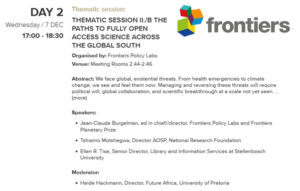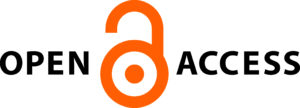[:en]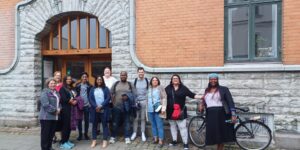
The Lund-Stellenbosch Professional Administrative Support Staff (PASS) Blended Mobility Programme is a comprehensive programme over some months that comprises not only site visits to the two universities but also several online and in person presentations. Topics of these sessions include South African and Swedish history and cultures, internationalisation, equality, intercultural competencies, and communication. As one of the ten Stellenbosch University (SU) participants in the programme, I visited Lund University (LU), Sweden from 11-15 September 2023.
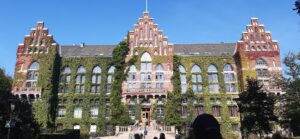
Two of the five days I spent divided between the LU Library and the Social Sciences Library, two of the 26 libraries serving their 8 000 employees and 45 000 students. In line with their open access and open science focus, their eight developers mainly support open-source systems. They have reorganised their library staff responsible for e-resource management, open access, open science and research support into one Scholarly Communication department. Transformative agreements with publishers and open science are addressed not from a research support perspective but strategically with conversations with the library and other role players at university level. There are as many similarities as differences between the LU and SU libraries, and we share many of the same challenges. The SU Library and Information Service compares well internationally and in some cases is ahead.
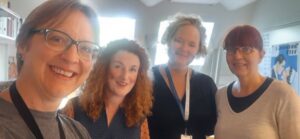
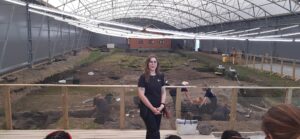
One of the many highlights of the trip was a visit to the Uppakra Archaeologica Centre, two kilometres north of Lund. Now farmland, the forty hectares used to be the largest and longest lasting Iron Age settlement (c100 B.C. and 1000 A.D.). From 1996 it became a focus for archaeological research and LU researchers are hard at work on site, working through cultural layers several metres thick to uncover traces of the earlier inhabitants. My general impressions of the Swedes are that they are honest, open, willing to share and very hospitable. They cycle and recycle on a large scale. They are law abiding with a focus on efficiency. I learnt that cyclists ringing bicycle bells behind you as a warning and reminder to stay on the right, out of their way, can be just as daunting as taxis hooting.
We are looking forward to hosting the ten LU participants in Stellenbosch from 13-17 November. Thank you to my fellow SU delegates for the opportunity to get to know you and learn about your areas of work and expertise. Thank you to SU International, Human Resources and the Library’s Senior Management for the chance to travel, experience a different culture, make contacts and build relationships, learn, benchmark, and apply what I have learned in my personal and professional capacity.
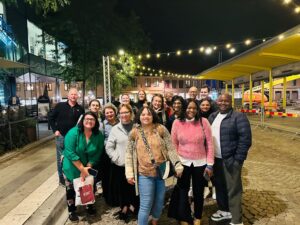
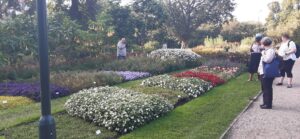
Natasja Malherbe
Photographs: Provided by Natasja Malherbe[:]
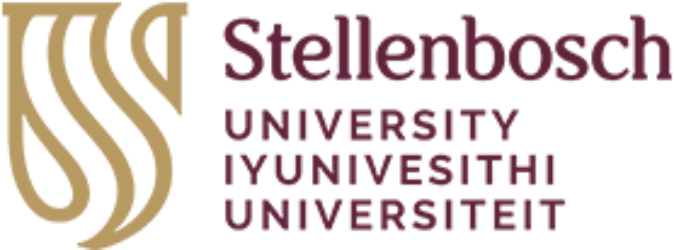
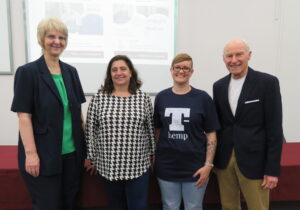 The thirteenth Manuscripts Section Lecture was presented during the SU Woordfees on 9 October this year as part of the discourse series, From the library archives. The lecture, with the title “Words that grow”, focused on the JJ Smith collection.
The thirteenth Manuscripts Section Lecture was presented during the SU Woordfees on 9 October this year as part of the discourse series, From the library archives. The lecture, with the title “Words that grow”, focused on the JJ Smith collection.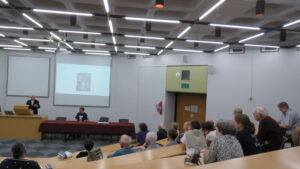 The second speaker, Dr Willem Botha, joined the editorial staff of the WAT in 1988 and retired in 2022 as Editor-in-Chief and Executive Director. He gave an overview of the history, growth, marketing, and move to the digital platform of the WAT.
The second speaker, Dr Willem Botha, joined the editorial staff of the WAT in 1988 and retired in 2022 as Editor-in-Chief and Executive Director. He gave an overview of the history, growth, marketing, and move to the digital platform of the WAT.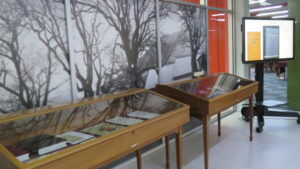 An exhibition of related books, documents and photos was displayed digitally and in the display cabinets in Special Collections.
An exhibition of related books, documents and photos was displayed digitally and in the display cabinets in Special Collections.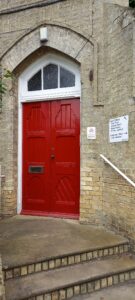
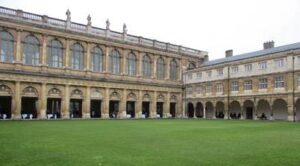
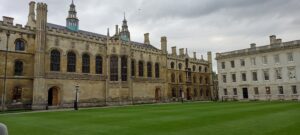
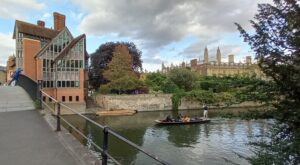
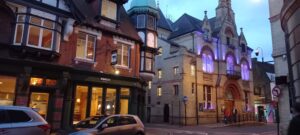
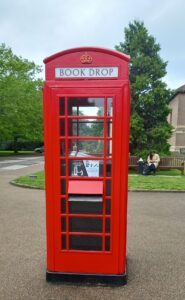
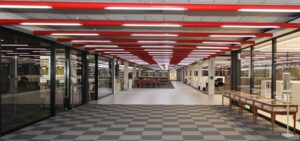
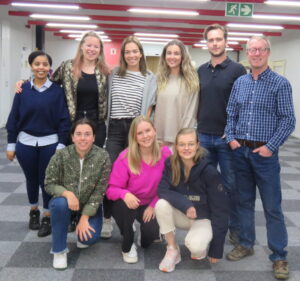

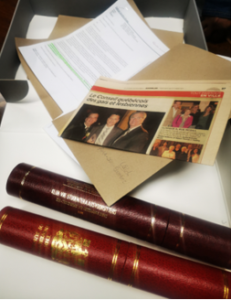 This comprehensive collection contains publications and lectures by Cameron as well as material on his voluntary community service. Importantly, it also contains material on his career and his years as Justice of the Constitutional Court of South Africa. This includes court cases, speeches, journals, videos, newspaper clippings and photographs.
This comprehensive collection contains publications and lectures by Cameron as well as material on his voluntary community service. Importantly, it also contains material on his career and his years as Justice of the Constitutional Court of South Africa. This includes court cases, speeches, journals, videos, newspaper clippings and photographs.
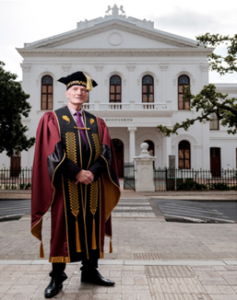 Cameron studied at the Universities of Stellenbosch, Oxford and South Africa. He started out his career at, among others, the University of the Witwatersrand’s Centre for Applied Legal Studies before he was appointed as senior counsel (SC) in 1994, and as an acting judge of the High Court by former President Nelson Mandela later that same year. He was appointed a judge of the High Court in 1995, judge of the Supreme Court of Appeal in 2001, and justice of the Constitutional Court in 2009.
Cameron studied at the Universities of Stellenbosch, Oxford and South Africa. He started out his career at, among others, the University of the Witwatersrand’s Centre for Applied Legal Studies before he was appointed as senior counsel (SC) in 1994, and as an acting judge of the High Court by former President Nelson Mandela later that same year. He was appointed a judge of the High Court in 1995, judge of the Supreme Court of Appeal in 2001, and justice of the Constitutional Court in 2009.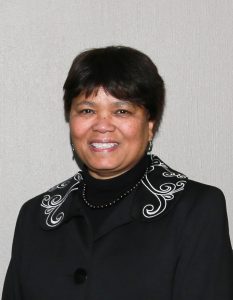
 The WSF takes place every two years and attracts scientists from all over the world. Established by the Hungarian Academy of Sciences, in collaboration with the United Nations’ Educational, Scientific and Cultural Organisation (UNESCO), the gathering deliberates on the social and economic relevance, influence and responsibilities of science.
The WSF takes place every two years and attracts scientists from all over the world. Established by the Hungarian Academy of Sciences, in collaboration with the United Nations’ Educational, Scientific and Cultural Organisation (UNESCO), the gathering deliberates on the social and economic relevance, influence and responsibilities of science.